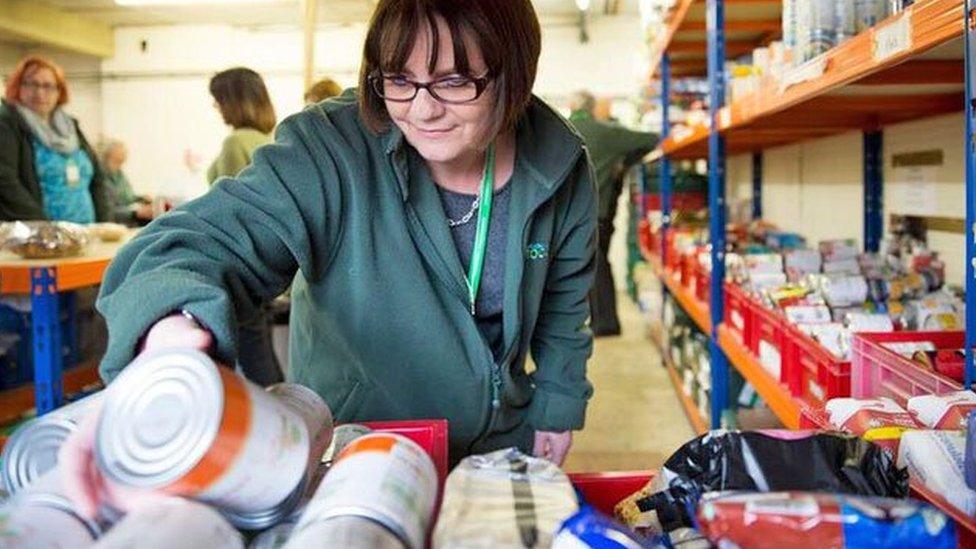Community group helps feed locals using 'food share'
- Published
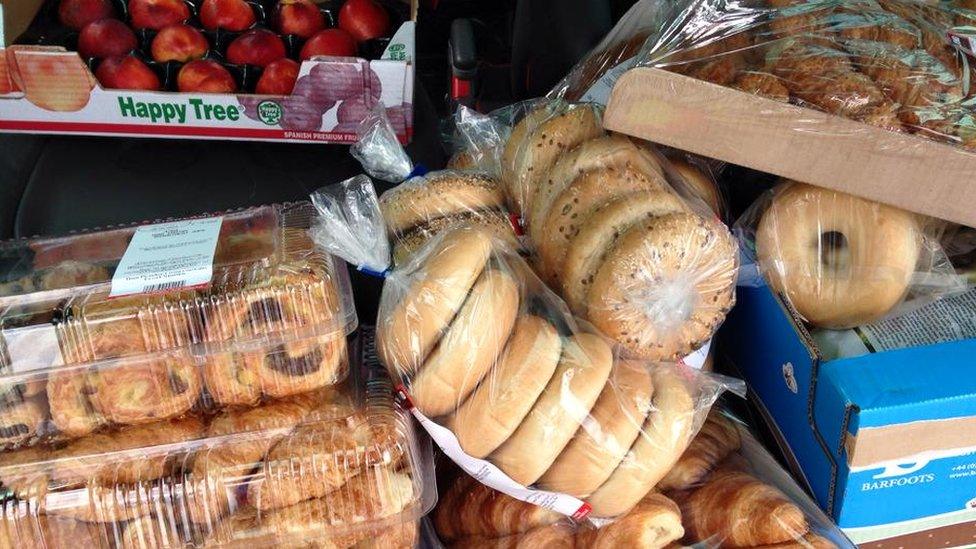
'One man's waste is another man's gain' - the community group distributes unwanted food
A Glasgow project is using unwanted food to try to tackle poverty and help protect the environment.
Crookston Community Group (CCG) began as a food bank service providing parcels to struggling locals.
Now they collect unwanted food from businesses when notified through community partner FareShare, external and they pass it on.
Some of the unwanted food is close to the recommended sell-by date but a lot is fresh and suitable to eat.
They hope to help people who are hungry and the environment at the same time, by diverting food which would usually go to landfill.
Founder Nasreen Ali said: "What better way to do this than through food."
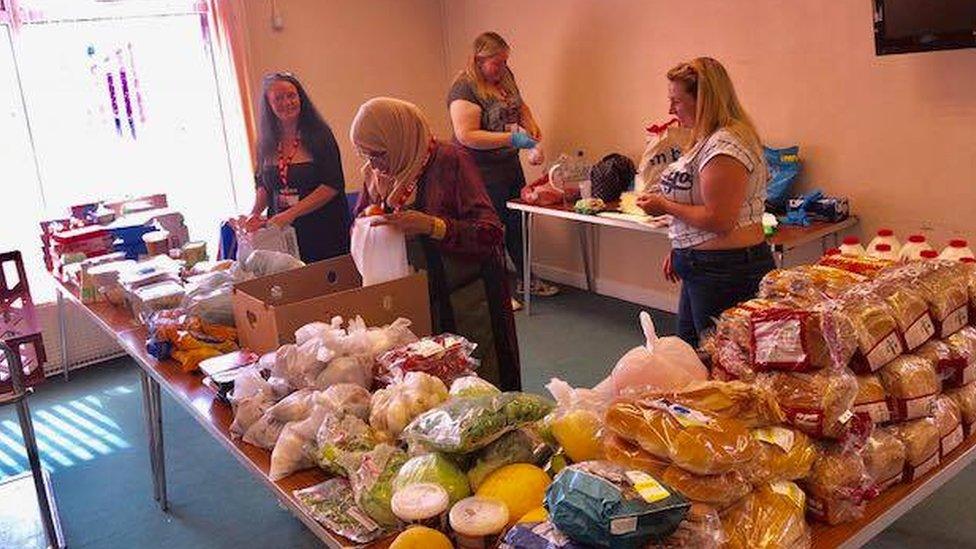
The static food share runs from a variety of locations across Glasgow
The food items can be made into parcels for individuals or families that are refereed to CCG through organisations such as Jobcenter Plus.
Ms Ali said: "We had 11 extra food parcels made up this week because of universal credit.
"We don't know why exactly, because it's an anonymous questionnaire we ask service users to fill in, but they all referred to universal credit."
Universal credit was rolled out in the Govan area close to the community group in September.
'No stigma'
Every Wednesday, CCG receives fresh food which they hand out at their food bank - held at various locations throughout Glasgow.
Ms Ali explained: "We get fresh meat and vegetables and fruit that has absolutely nothing wrong with it and that's when we do a static food bank and that food is given out straight away."
There is no qualification to use the food share, which she said was helping to stop the "stigma" attached to receiving food.
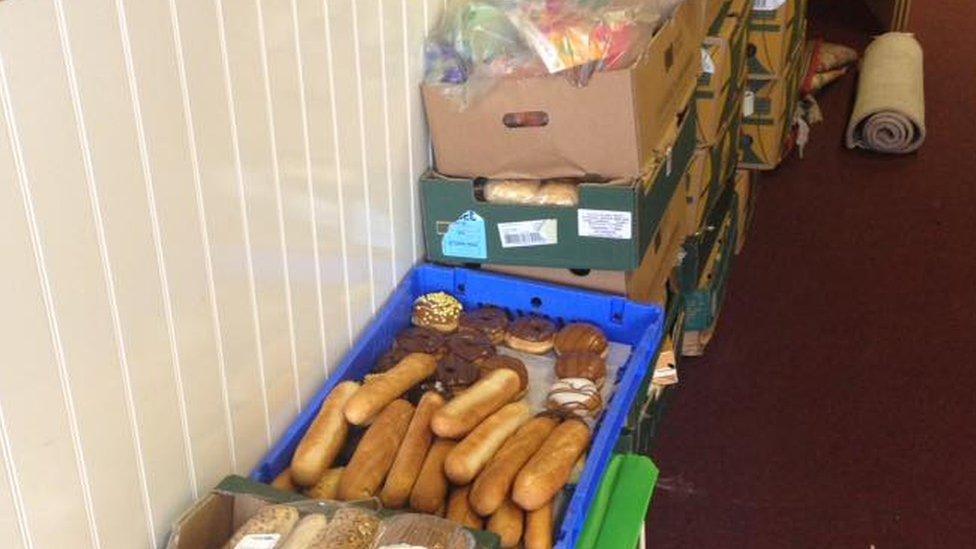
The group receives a text message offering them food from local businesses they then give it out through their food share service
"There isn't really a qualification for the food share, people come and they might be working but they really need food," she added.
"We try not to stigmatise anyone, as long as everyone in the community has the access to it and they food doesn't go to the landfill."

'Zero food waste'
The group's effort divert food waste matches with the Scottish government's Managing waste policy, external, which aims to reduce all food waste in Scotland by 33% by 2025.
The government has committed to progressive bans on certain materials going to landfill, set out in its Zero Waste plan., external
Now grants of up to £1m are being made available for Scottish businesses which develop creative ways to recycle their unwanted food.
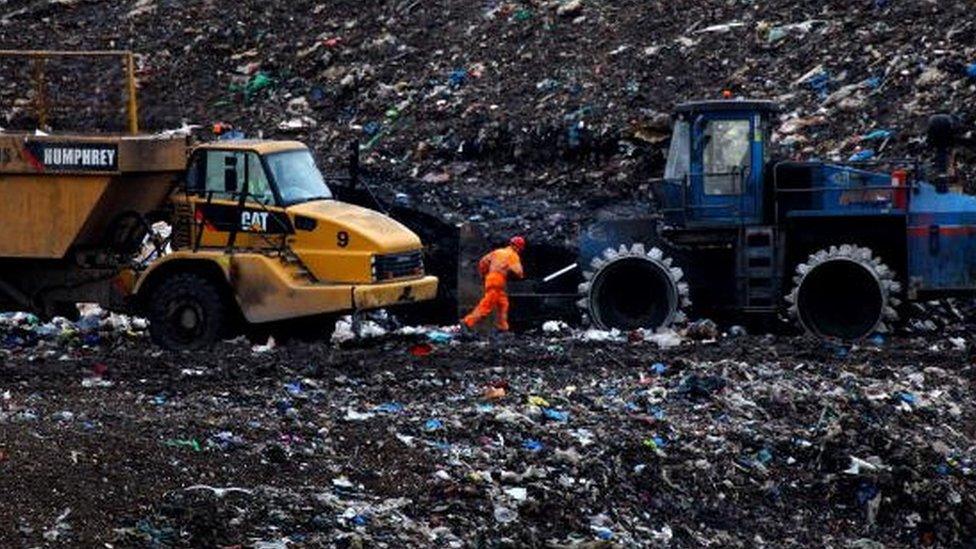
In 2017, 3.83 million tonnes of waste was disposed across 56 waste sites in Scotland, an increase of 90,816 tonnes from 2016
Zero Waste Scotland said that one good example was Jaw Brew's HardTack beer, which is made using leftover bread from Aulds bakery.
Zero Waste chief executive Iain Gulland said: "We hope that by highlighting this funding we will encourage more SMEs to come forward with innovative ideas to cut waste and create new business opportunities.
"When it comes to food waste, there is no trade-off between doing the right thing for the climate and doing the right thing for your business."
The organisation estimates that the amount of food which could have been eaten but instead is thrown away by food outlets amounts to about one in six meals.
Research indicates that up to 75% of food waste from the food sector could be avoided and £166m could be saved through food waste prevention.
- Published29 October 2018
